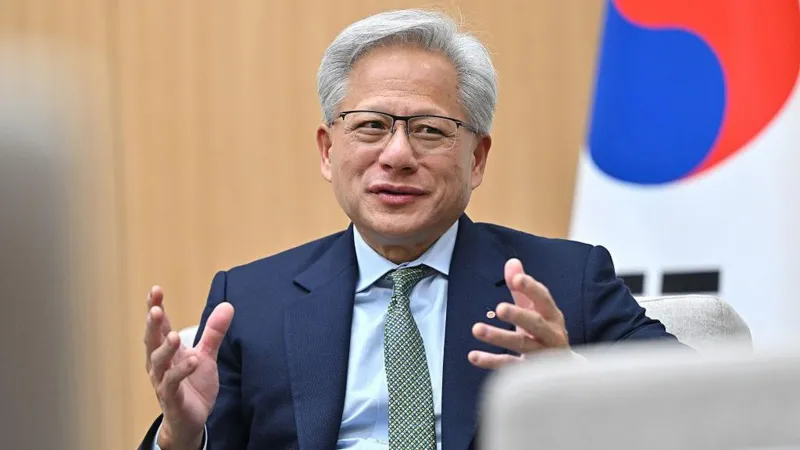Nvidia’s Massive Expansion Fuels South Korea’s AI Ambitions
U.S. semiconductor giant Nvidia has announced a sweeping partnership to supply more than 260,000 advanced AI chips to South Korea’s government and major corporations including Samsung, LGy Hyundai. The chips, part of Nvidia’s latest Blackwell architecture, will power the next generation of smart manufacturing, robotics, and autonomous vehicles, positioning South Korea as one of the most advanced AI-driven economies in the world.
Nvidia CEO Jensen Huang highlighted that the deal marks a pivotal step for South Korea, allowing the nation to “produce intelligence as a new export.” Although the company did not disclose the financial value of the agreements, industry estimates suggest the partnership could exceed $260 billion in total AI infrastructure investments when including related technology and logistics.
The initiative aligns with South Korea’s push for sovereign AI — a strategy to develop national computing capacity independent of foreign control. President Lee Jae Myung has emphasized that AI will be central to the country’s industrial and digital transformation, prioritizing investment in advanced chip technologies and sustainable energy systems.
Strategic Shift Amid U.S.-China Tech Rivalry
The announcement follows a turbulent period for Nvidia, caught between Washington’s export restrictions and Beijing’s growing semiconductor ambitions. The U.S. has limited the sale of Nvidia’s most advanced AI processors, such as the H100 and Blackwell series, to China on national security grounds. However, recent trade discussions between President Trump and China’s Xi Jinping have hinted at possible openings for technology cooperation.
Huang expressed optimism about renewing sales to China, calling it “in the best interest of both nations.” Despite the restrictions, Nvidia has developed scaled-down versions of its chips — including the H20 model — for the Chinese market, produced in collaboration with Samsung Electronics.
Meanwhile, China has accelerated efforts to close the technology gap by promoting domestic alternatives from Huawei y Alibaba, both of which have unveiled AI chips claiming to rival Nvidia’s capabilities. According to analysts at TechCrunch, U.S. sanctions have inadvertently spurred innovation within China’s semiconductor sector, driving a wave of AI development projects.
Still, Nvidia’s relationships in the Asia-Pacific region remain strong. The company relies heavily on TSMC in Taiwan and SK Hynix in South Korea for chip manufacturing. These suppliers play a vital role in producing Nvidia’s most sophisticated processors used in data centers and AI training systems worldwide.
Global AI Expansion and Industry Partnerships
Nvidia’s rapid global expansion extends far beyond South Korea. In the past year, the company has forged key partnerships with the U.S. Department of Energy, Nokia, Ubery Stellantis, strengthening its foothold across multiple industries including mobility, telecommunications, and renewable energy.
In South Korea, more than 50,000 Nvidia AI chips will be deployed across national and private data centers, including the National AI Computing Center, as well as corporate facilities operated by Kakao y Naver. The chips will power large-scale AI models, advanced robotics systems, and real-time digital twins — virtual replicas of manufacturing plants that can simulate operations to boost productivity and efficiency.
South Korea’s strategic investment in AI infrastructure coincides with its goal to become a major exporter of intelligent technologies. Industry observers expect that these developments will help the country capture a significant share of the global AI economy, projected to surpass $15 trillion by 2030.
Nvidia’s partnerships also reflect a shift toward distributed AI ecosystems, where nations develop independent yet interconnected computing frameworks. For Huang, this model ensures that technological innovation remains inclusive, decentralized, and resilient to geopolitical pressures. “AI is the new electricity,” he said during his address in Gyeongju. “Our mission is to help every nation power its own intelligence economy.”



